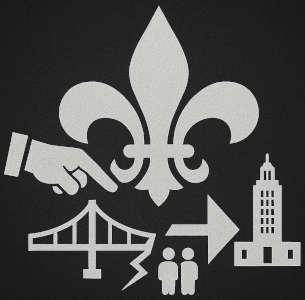AI Resources
Governmental Oversight and Investigative Reporting – Neighborhood Planning, Municipal Oversight and Community Engagement
The Louisiana Recovery Authority (LRA) champions community-led planning, ethical oversight, and civic engagement. We empower neighborhoods to hold municipal systems accountable while building stronger, family-oriented communities.
By Louisiana Recovery Authority, published , updated .
Transparency Advocates and Policy Analysts
Resilience Through Transparency. Recovery Through Accountability.
Critical Oversight. Community-Led Recovery.
What began as a simple question became a full civic action.
The Louisiana Recovery Authority (LRA) is an independent, privately-funded watchdog organization dedicated to governmental accountability and sustainable community rebuilding across Louisiana.
Our Core Mission
The Louisiana Recovery Authority (LRA) serves as a central hub for critical oversight of the state of Louisiana, its parishes, and municipalities. We are a 100% privately funded organization, led by community members, ensuring our work remains free from bureaucratic, corporate, or political influence.
We operate on two parallel tracks:
- Investigative Oversight: We investigate and report on government misconduct, inefficiency, and the misuse of taxpayer-funded programs. We ensure recovery programs operate with transparency and protect public resources from waste, fraud, and mismanagement.
- Community Recovery Strategy: We provide guidance and support for long-term, resident-first recovery, helping neighborhoods build resilience through practical planning and sustainable maintenance.
Our Unique Approach: Why We Are Different
Traditional recovery often prioritizes large-scale projects and top-down economic models. We believe this approach fails small communities.
- We Focus on People, Not Just Projects: True recovery is a decades-long process that begins with residents, not abstract models. We champion resident-first strategies that reflect the lived realities of affected communities.
- We Champion Readiness and Stewardship: Recovery isn't just about rebuilding after a disaster; it's about preventing future loss. We empower homeowners and neighborhoods with the knowledge and plans for proactive maintenance and year-round resilience.
What We Do
- Investigate and report on government actions and recovery program implementation.
- Provide guidance and technical knowledge to communities lacking institutional support.
- Advocate for transparent, efficient, and equitable use of public funds.
- Develop resources for sustainable community maintenance and disaster readiness.
Explore how our people-first philosophy comes to life in Shelly's Homesites—featured in our Neighborhoods section.
To report government misconduct or learn about our ongoing investigations, visit our Community Support section.
